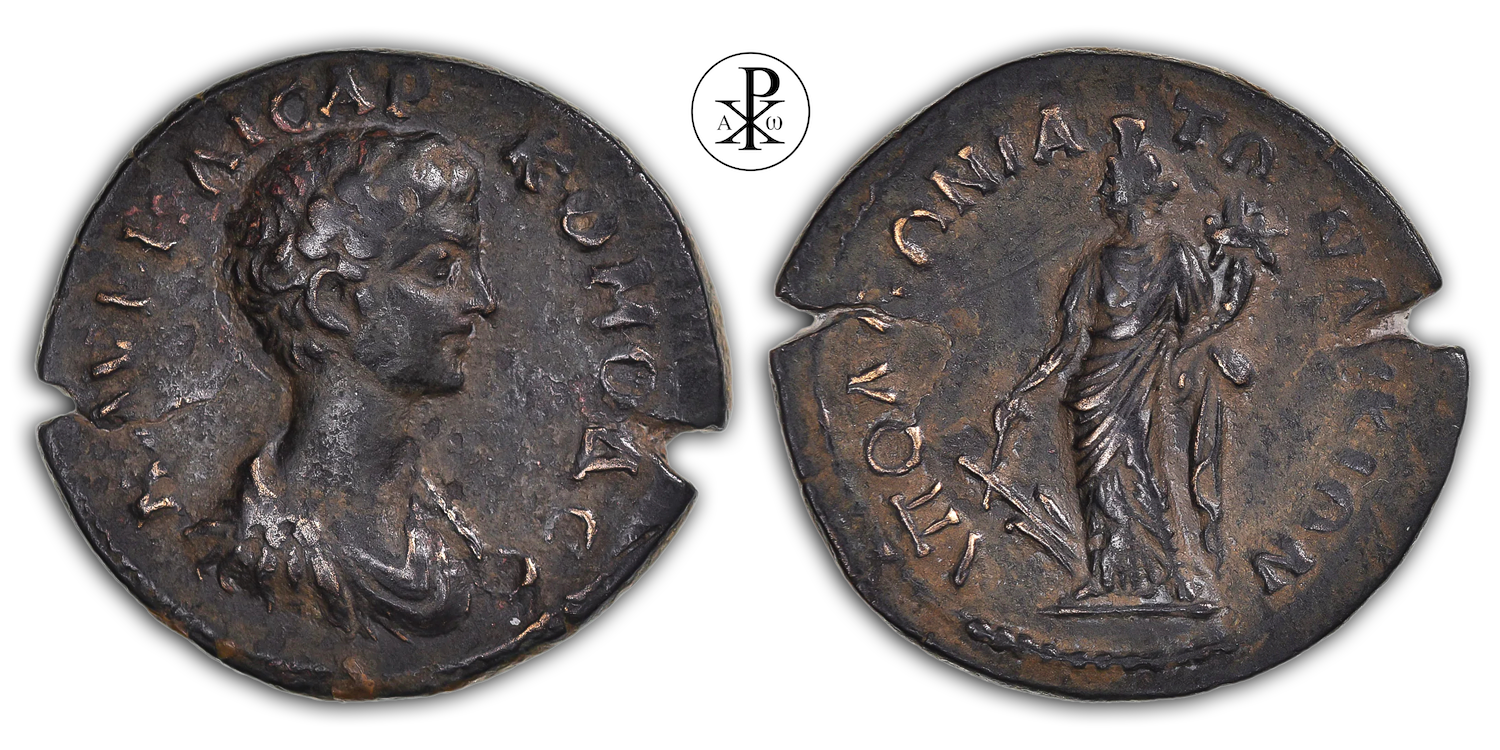Lucius Aurelius Commodus Caesar Augusti Filius
Reign: Marcus Aurelius
Mint: Apollonia Mordiaeum, Pisidia
Date: 166/177 AD
Nominal: Bronze Trissarion
Material: AE
Diameter: 29.5mm
Weight: 9.53g
Reference: RPC IV.3 7734 (#5 this coin)
RPC Online: https://rpc.ashmus.ox.ac.uk/coins/4/7734
Rare: Specimens 5 (1 in the core collections)
Provenance: Comptoir des Monnaies Anciennes Lille, France
Pedigree: –
Obverse: Bare headed bust of youthful Commodus to right, wearing cuirass and paludamentum
Inscription: Μ ΑVΡ ΚΑΙϹΑΡ ΚΟΜΟΔΟϹ
Translation: Marcos Aurelios Kaisaros Komodos
Translation: Marcus Aurelius Caesar Commodus
Reverse: Tyche standing left, wearing kalathos, holding rudder and cornucopia
Inscription: ΑΠΟΛΛΩΝΙΑΤΩΝ ΛVΚΙΩΝ
Translation: Apolloniaton Lukion
Translation: City of Apollonia Lukion
Comment: Apollonia (Sozopolis) was an ancient city in the Pisidian countryside near present-day Uluborlu in the Turkish province of Isparta. Stephanus of Byzantium wrote that Apollonia was originally called Mordiaeon or Mordiaïon and was famous for its quinces. Apollonia is mentioned by Strabon, the Tabula Peutingeriana and Claudius Ptolemy, among others. Unfortunately, little is known about its history. The coins of Apollonia identify Alexander the Great as its founder and also give the name of a stream that flowed there, the Hippopharas. Two Greek inscriptions from the Roman period, copied by Francis Arundell, give the full title of the city in this period as „the Boule and Demus of the Apolloniatae Lycii Thraces Coloni,“ from which he concluded that the city was founded by a Thracian colony that had settled in Lycia, but this conclusion is not generally accepted. What has survived are inscriptions and coins of the city from the Roman imperial period. Fragments of the Res Gestae Divi Augusti in Greek have been found in the area. The reverse of the provincial bronze shows the goddess Tyche with her typical attributes of cornucopia and oar. In Greek mythology, she is the goddess of fate, fortune (or misfortune) and chance. The Roman equivalent is the goddess Fortuna. The Hellenistic development of Tyche into a city goddess then finds its continuation in the Roman Fortuna. Many cities in Asia Minor during the Roman Empire worshipped their respective Tyche as the goddess of their city’s fate.
